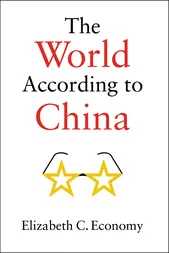Protests in Hong Kong: Three Things to Know
October 7, 2014 3:07 pm (EST)
- Explainer Video
The Chinese government’s decision to appoint Hong Kong’s next chief executive from a list of vetted candidates has caused protests throughout the former British territory. Young students and professionals have banded together to demand more autonomy and express other grievances related to urban life. As the protests enter a second week, Barbara Demick, CFR’s Edward R. Murrow Press Fellow, offers three things to know:
- Not Tiananmen: The demonstrators—most in their teens and twenties—may conjure images of Tiananmen Square, but unlike 1989 the protests are not calling for democracy in mainland China, says Demick. "They are looking for a degree of self-rule for Hong Kong, which is, after all, a special administrative region," she explains.
- Broken Promises: In the eyes of the protestors, "China has reneged on pledges it made in 1997 when Hong Kong reverted from British to Chinese rule," says Demick. As part of the transition, Hong Kong was guaranteed autonomy, freedom of speech, and free assembly—in a law commonly known as "one country, two systems." Beijing also promised "universal suffrage" by 2017, which many protestors believe should include the free election of Hong Kong’s chief executive.
- Basic Complaints: Beyond their rhetoric of democracy and freedom, Hong Kong protestors have "some real bread-and-butter grievances," says Demick. These include urban overcrowding, exorbitant real estate prices, and an extremely competitive job market.
Top Stories on CFR
Terrorism and Counterterrorism
 Online Store
Online Store

